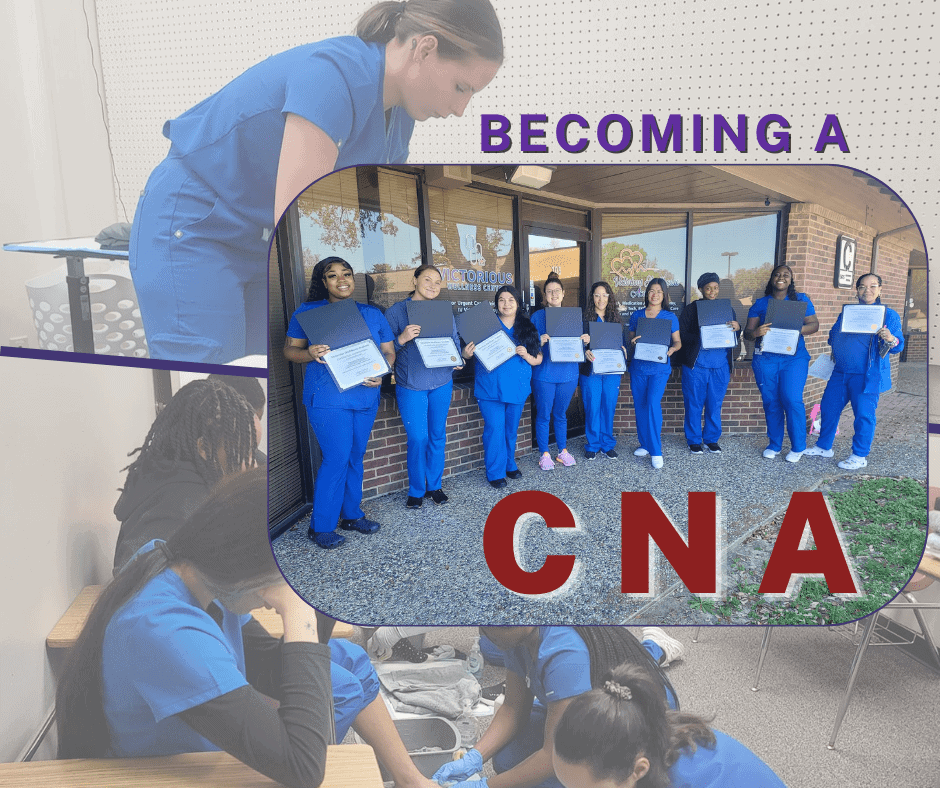Duration of the CNA training
To become a CNA, your first step is to complete a state-approved training program. You can enroll in community colleges, vocational schools, and nursing homes. CNA programs can be in a traditional classroom setting, online, or through a hybrid program that combines both.
The length of the program varies by state, but the average time ranges from 4 to 12 weeks. You can expect the number of hours of training required to range from 75 to 180 hours. Depending on state regulations, a typical 120-hour CNA course may involve four weeks of classroom study and two weeks of practical training in a clinical environment.
CNA training requirements
Each state has its own set of requirements for CNA training. If you want to become a CNA, here's a list of some of the requirements to enroll:
-
Age: You must be at least 16-18 years old, or check with your state board of nursing to determine your state's age requirement.
-
High School diploma or equivalent: Some states may require a high school diploma or equivalent to enroll in a CNA program.
-
Criminal background check: Many states require CNAs to undergo a criminal background check as part of the certification process.
-
Physical Fitness: Some states require you to meet specific physical requirements to enroll in a CNA training program.
-
Immunization: Many states require proof of vaccination or immunization for certain diseases, such as measles, mumps, and rubella, to enroll in a CNA training program.
-
State ID or Social Security Card: Some states require you to provide a state ID or social security card as proof of residency; these IDs may be required when you process scheduling your state exams.
CNA certification exam
After completing a state-approved CNA training program, you must pass a certification exam to become a licensed CNA.
The exam consists of a written portion and a clinical portion. The written part is where you have to answer a series of multiple-choice questions. It is usually administered by a third-party test proctor such as Prometric, Pearson VUE, or the American Red Cross.
You must prove your nursing skills by performing CNA tasks during the practical portion. A registered nurse (RN) usually supervises this part of the exam. You can complete both portions on the same day in most cases. Passing requirements vary by state; a minimum score on both exam portions is required.
-
Waiting period before the test: The waiting period for you to take the state test varies depending on your location. It may be available immediately after graduation, or you may have to wait 2 - 6 weeks before testing. Some states require you to take the state exam within two years after completing your training. It is always best to check with your state to confirm the waiting period.
-
Waiting period after the test: The time it takes to receive your certification or license after passing the state test can vary depending on the state you’re in. In some states, you may receive your certificate immediately after passing the exam; in others, it may take two weeks or longer.
-
Retaking the test: You should check with your state board of nursing for specific policies and procedures about retaking the exam. Rules and regulations can vary depending on the state. Some allow candidates to retake the exam as soon as 30 days after the first attempt. Others may take a more extended waiting period. Extra training or education may also be required before you retake the exam.
Factors affecting the time it takes to become a CNA
It’s worth noting certain factors that can affect the time it takes to become a CNA:
-
State requirements: Each state has its requirements for CNA training and certification. This includes the number of training hours and the training program's content.
-
Type of program: CNA programs are available in various institutions. Each has varying program lengths and schedules. Community colleges offer more extended CNA training programs than vocational schools and healthcare facilities.
-
Part-time or full-time enrollment: Enrolling as a part-time student can extend the time it takes to complete the program compared to full-time enrollment.
-
Prerequisites: Some CNA programs, such as a high school diploma or equivalent, need prerequisites. This can add to the time it takes to become a CNA if you do not have one.
-
Clinical experience: CNA programs require clinical hours ranging from 75 to 180 hours. The length can vary depending on the program and the state requirements.
-
Exam scheduling: CNA certification exams may only be available on specific dates or at certain locations. It can delay the time it takes to complete certification.
-
Individual pace: The time it takes to complete a CNA program and become certified can vary depending on your circumstances and learning pace.






